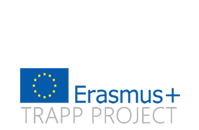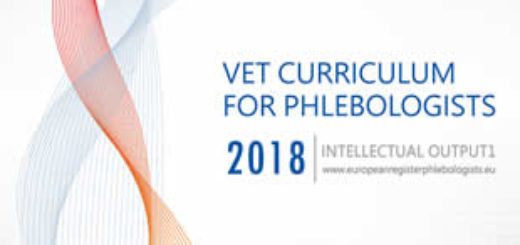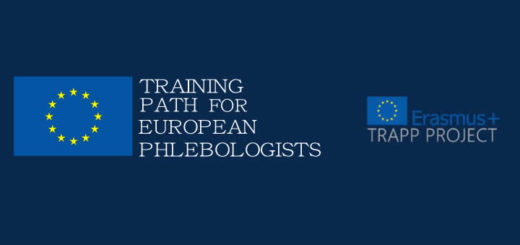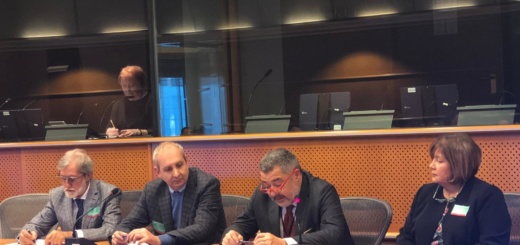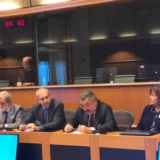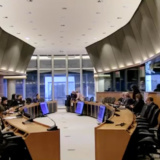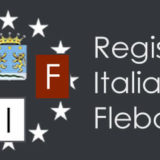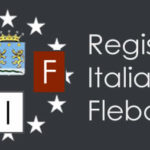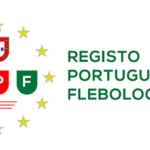EUROPEAN PROJECT: EUROPEAN REGISTER OF PHLEBOLOGISTS
Objective:
- Recognition in Europe of the professional figure of “Phlebologist.”
- Establishment of the European Register of phlebologists.
- Identification of a harmonised training path within the EU.
INTRODUCTION
The SIF (Italian Society of Phlebology), the first Italian Scientific Society of Phlebology, was born 28 years ago, the AFI (Italian Association of Phlebology) and all the other companies of Phlebology in Italy have sought to provide their members, through conferences and specific formation activities (carried out in collaboration with universities and health care or training organisations), the training and retraining in the field of Phlebology.
All these activities, carried out in almost thirty years, has trained many doctors in phlebology, both at university and outside, but that can not be called specialists in Phlebology because there is no such specialization. However, they can be considered and called experts in phlebology because they have participated in many training events and upgraded their competences to make them phebologists (this does not mean specialists but experts in phlebology).
THE PROJECT
The aim of the project to which you are invited to participate is to define the correct identity of the topic “PHLEBOLOGY” with the final aim to give a common professional identity to the members of the National Societies and to recognize the professional figure of “Phlebologist” at European level.
As the category “phlebologist” is not recognized we have created the Italian Registry of phlebologists. Since we are not able to give a degree of specialist in Phlebology we have thought to give a professional identity to those who made an appropriate theoretical and practical training, have worked in the sector for many years and are committed to constantly re-train themselves.
To assist us in this challenge we have hired the company Medin Europe SPRL, that today is hosting us here, to illustrate the contents of the European project that we are going to submit in the EU programme Erasmus + and for which you have been invited to participate as partners. As a preliminary study, we have discovered that the professional category of Phlebologist does not exist in the ESCO (European classification of skills / competences, qualifications and occupations) catalogue but, on the other hand, in the healthcare area exist categories such as the “medical specialists”, that are not specialist jobs (ie: hand surgeon or clinical physiologist, see annex1).
Our project will have the following aims:
- Creation of the European Register of Phlebologists and of national registers
- Establishment of a system of recognition of the qualifications and competences acquired
- Definition of the professional figure of Phlebologist with a homogeneous profile in the EU
- Identification of the training and re-training courses that include the recognition of qualifications inside the ECVET credit system*
- Inclusion of the qualification in the European Qualification Framework **
- Classification of the professional figure of Phlebologist in ESCO (European classification of skills/competences, qualifications and occupations).
The project will allow us to identify the characteristics of the professional figure of the phlebologist and the training needs quantified in terms of teaching topics and related training credits, in order to have a homogeneous professional profile in all the EU countries. This is in line with the EU directive that will allow – at the latest from 2016 – the free movement of health professionals.
*ECVET
ECVET is a European system of accumulation (capitalisation) and transfer of credits designed for vocational education and training in Europe. It enables the attesting and recording of the learning achievement/learning outcomes of an individual engaged in a learning pathway leading to a qualification, a vocational diploma or certificate.
It enables the documentation, validation and recognition of achieved learning outcomes acquired abroad, in both formal VET or in non-formal contexts. It is centred on the individual, based on the validation and the accumulation of his/her learning outcomes, defined in terms of the knowledge, skills and competences necessary for achieving a qualification. ECVET is a system designed to operate at the European level, interfacing with national systems and arrangements for credit accumulation and transfer.
** EQF
The European Qualifications Framework (EQF) is a European-wide qualifications framework which joins the qualifications of different EU members together. In a way, it is a translation of different national qualifications which makes qualifications in different EU countries easier to understand. The EQF aims to facilitate mobility of students and workers within the EU in order to encourage development mobile and flexible workforce throughout Europe and to help develop lifelong learning
Activities and follow-up projects
The launch of the project and the creation of national registers should generate a series of follow-up activities, such as:
- One project Erasmus Mundus for the construction and implementation of a Master’s Degree program in Phlebology that is common to three European countries and open to the participation of student from all over the world. In Italy some universities have already declared their availability to participate: the Inter-University Centre for Research and Training in Phlebology (a group composed of: University of Perugia, L’Aquila, Naples Federico Secondo, and Second University of Naples), represented at the meeting of 8 July by Prof. Gennaro Quarto; the Insubria University and the University of Camerino
- Projects for the implementation, by private institutions, of training courses to update the theoretical-practical knowledge and coordinated together in various European countries
- Creation of a European coordination of the Consumers’ Associations affiliated to the Registers and National Scientific Societies in order to protect the patients and consumers and to promote the professionalism of the members phlebologists. With this respect, the Italian Society of Phlebology has an agreement with the AIF (Italian Association Phlebopatics) and with the UDICON (Union to protect consumers) that is represented in the meeting of 08 July by Prof. Antonello Desogus. The goal is to standardize and harmonise the services provided by the National Health System of every Member State
- Having as a project partner the European Association of Private Hospitals (UEHP) will surely increase the phlebology activities in these structures because they can take advantage of the collaboration of accredited phlebologists and can be enrolled in the Register of Clinical Centers of Phlebology. In Italy, for example, we have already created a Register of Clinical Centers of Phlebology (classified per region and province) with a list of structures where the phlebologists that are members of the national register are working.
Taken from “Registro Italiano Flebologi”

